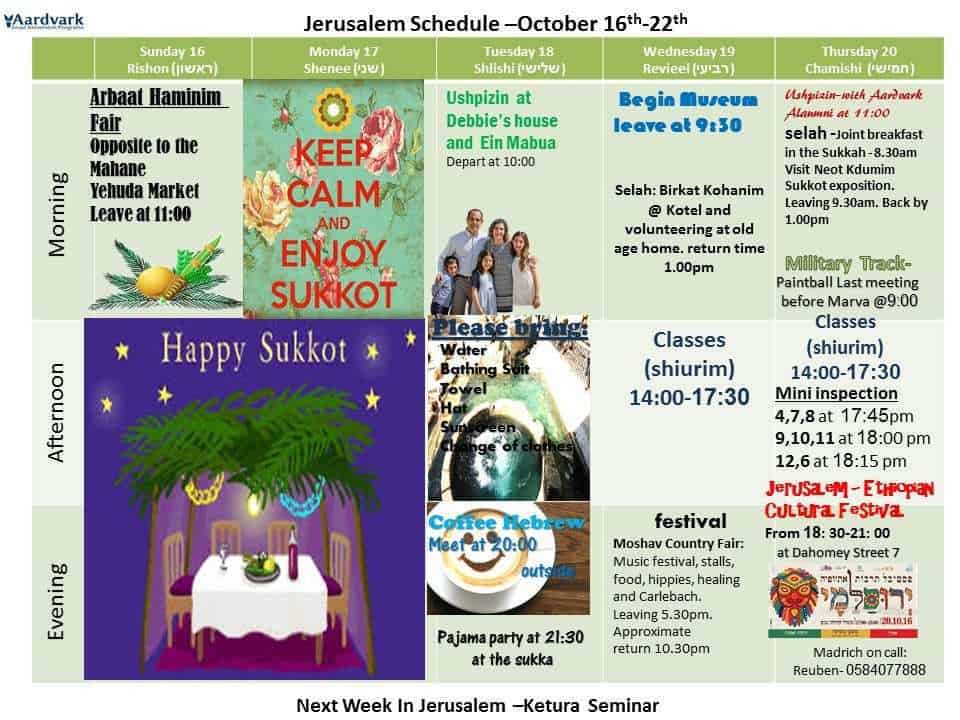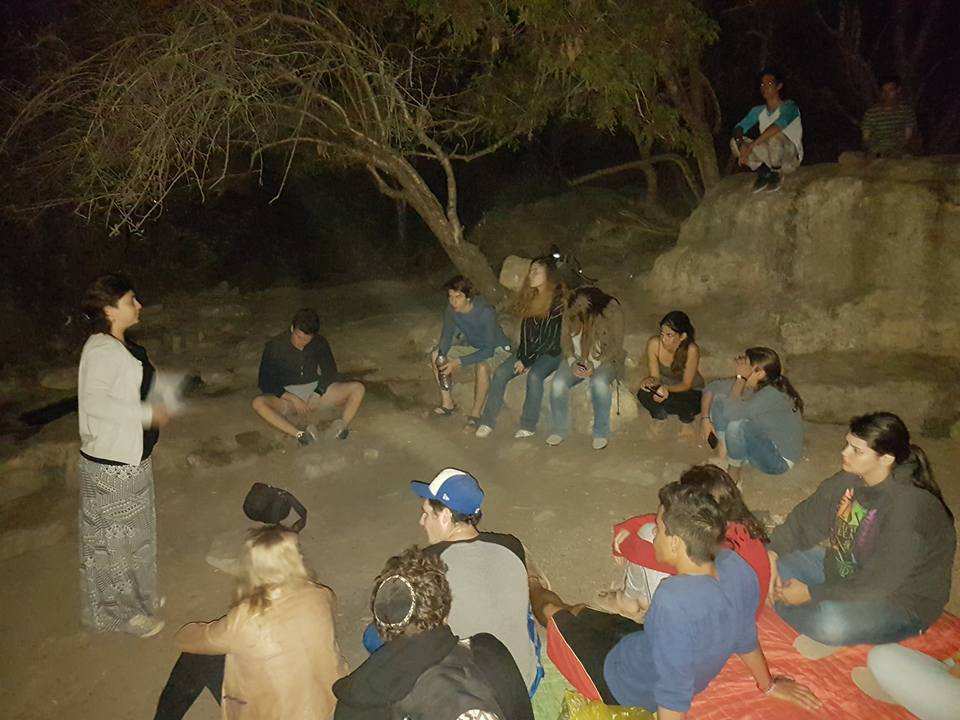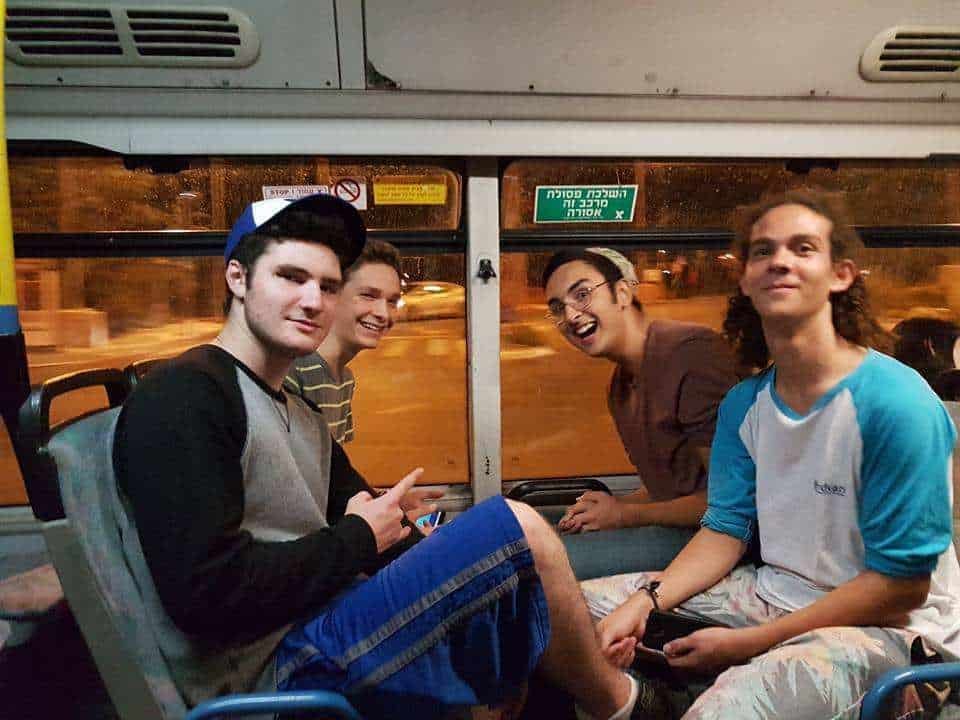Dear Parents,
Happy New Year and we hope you all had an easy and meaningful Yom Kippur.
This week, in honor of the new year, we helped the kids turn their eyes within. At this time of the year, during the holidays, we asked the students to reflect their time here in Israel and their experience so far at Aardvark, on which personal qualities they want to work on during this year away from home and in a new environment. We asked them to think about how they can make their experience this year a positive. What might they want to change in themselves in order to become better people. Of course, none of these questions have easy answers, but at least we started the process.
Part of this self reflection began when we took the students to Tashlich. Tashlich is a ritual that many Jews observe on Rosh HaShanah. “Tashlich” means “casting off” in Hebrew and involves symbolically casting off the sins of the previous year by tossing pieces of bread or another food into a body of flowing water. On Monday night, we went to a natural spring close to Jerusalem called ‘Ein Sarig’. There, we set out blankets for the students to sit on and we had a little study session about Tashlich: why we do it and from where it originates. Then, we got up, as a group, went over to the spring, recited the Tashlich prayer and threw all of our sins away. After we handed out note paper and asked the students to write what they wanted to “throw away” from this past year and what we want to improve in the upcoming year. The evening was lovely and while the students wrote, we handed out tea we boiled on our camping stove. The students really enjoyed it and found it very meaningful!
On Tuesday we made our own communal meal before the Yom Kippur fast. Each student apartment prepared dish. We were all wearing white clothes and there was feeling celebration in the air. Yom Kippur in Israel is an especially festive day. There are no cars on the road; there is no open spaces. There is a special atmosphere in the air, as if all the turmoil of everyday life has stopped and we finally have the opportunity to concentrate on our inner lives.
Recently we began studying the different approaches used in political science. On Monday we focused on four theories that are common in Hebrew liturgy: Goals, Power, Systems and Rational Choices. After explaining each theory we then applied the theories to two recent events, a terrorist attack on the one hand and the recent argument between the Israeli government, the Israeli Supreme Court and the international community over relocating a number of families from the outpost of Amona to the settlement of Shiloh. What is so interesting about applying these theories is that they offer radically different perspectives and understanding of the same political event. One of the most important things I try to teach in class is the ability to think about politics in a complex way. I try to challenge simple thinking about Israel’s domestic or foreign policy. The students are learning to go deeper into the news and find more sophisticated ways of framing a story.
Next week we will be celebrating the holiday of Sukkot. We’re looking forward to visiting Debbie, director of the program. We will visit her sukkah and visit her small community.
May we all sit with happiness in the Sukkah!
Shabbat Shalom and Chag Sameach .





















